Hong Kong’s legal professionals have criticised Beijing for bypassing the amendment procedure set out in the territory’s mini-constitution and making a “direct application” of Chinese national laws to Hong Kong.
On Monday, China’s legislature, the Standing Committee of the National People’s Congress (NPCSC), voted on and passed The NPCSC’s interpretation of the Basic Law Article 104 of the Hong Kong Special Administrative Region with unanimous support. It was the fifth Basic Law interpretation since the 1997 handover.
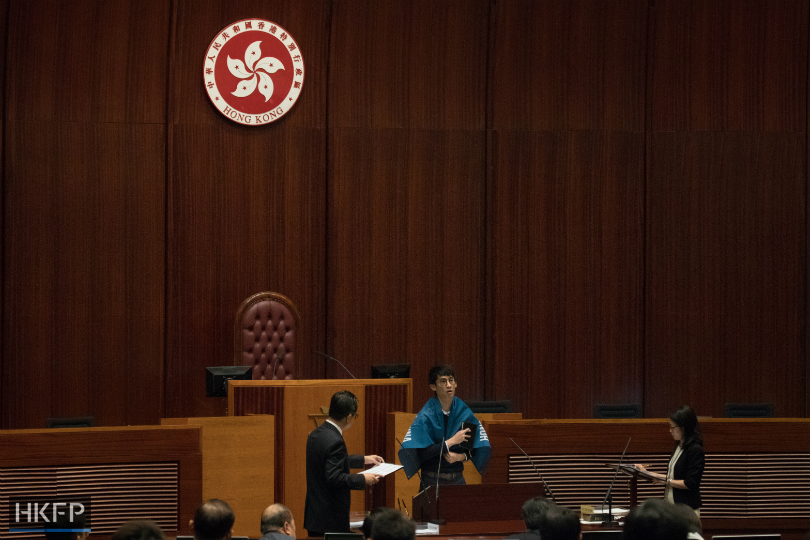
Article 104 of the Basic Law stipulates that lawmakers, members of the judiciary and public officers must, “in accordance with law,” swear allegiance to the Hong Kong SAR.
Monday’s interpretation sought to define the term “in accordance with law,” which now means that oath-takers must “fulfil the statutory requirements in format and content” by “accurately, completely and solemnly” reading out phrases such as the full name of Hong Kong.
See also: In full, in English: Beijing’s interpretation of Hong Kong’s mini-constitution, the Basic Law
It warns that those who make a “false oath” or break their oath – which it says is legally binding – are not allowed to retake their pledges and will bear “legal responsibility.”

Nature of the interpretation
HKU law professor Benny Tai Yiu-ting said the NPCSC is “actually legislating directly for Hong Kong by adding detailed provisions” to local laws on oath-taking in the name of an interpretation.
“[The interpretation] is a direct application of national laws to Hong Kong, an amendment to the Basic Law and an adjudication of an issue in a trial,” Tai said, adding that the NPCSC has gone beyond its power stipulated in the Basic Law and the Chinese Constitution.
Under Article 18 of the Basic Law, national laws are not applicable to Hong Kong, except for laws concerning defence, foreign affairs and matters outside the autonomy of Hong Kong. In addition, these laws can only be applied locally by amending Annex III of the Basic Law and then by way of promulgation or legislation.
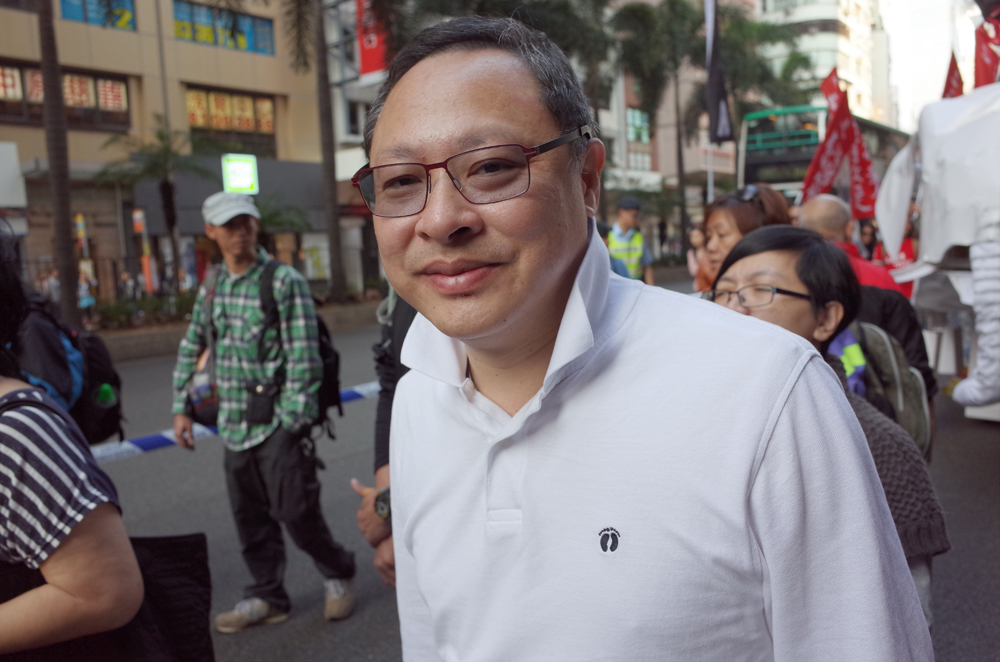
If the interpretation has an retroactive effect, it will also not be an interpretation but rather an adjudication of an issue that is being heard by Hong Kong’s court, Tai said.
If this is the case, the interpretation would violate two articles of the Basic Law: Article 19, which grants Hong Kong independent judicial power and the power of final adjudication; and Article 80, which entitles Hong Kong’s courts to exercise the judicial power of the territory.
Non-compliance
The interpretation states that failing to take an oath “accurately, completely and solemnly” will cause a public officer to be disqualified from assuming their office.
Tai said that Beijing’s ruling is effectively an amendment to the Basic Law, as Article 79 gives a list of seven conditions under which lawmakers may be disqualified, and non-compliance of oath-taking provisions is not one of them. “[An] eighth condition is in effect added,“ he said.
Article 159 of the Basic Law sets out the procedure for amending the mini-constitution, but the procedure is an onerous one. It has never been invoked since the 1997 handover.
‘Legal responsibility’
Monday’s interpretation also stated that oath-takers who make a “false oath” or break the oath will bear “legal responsibility.”
Lawyer Kevin Yam of the Progressive Lawyers Group told HKFP that it is unclear what the vague wording of “legal responsibility” refers to although, at face value, criminal liability is an option. In addition, any legal responsibility would be stipulated by Hong Kong laws rather than the Basic Law.
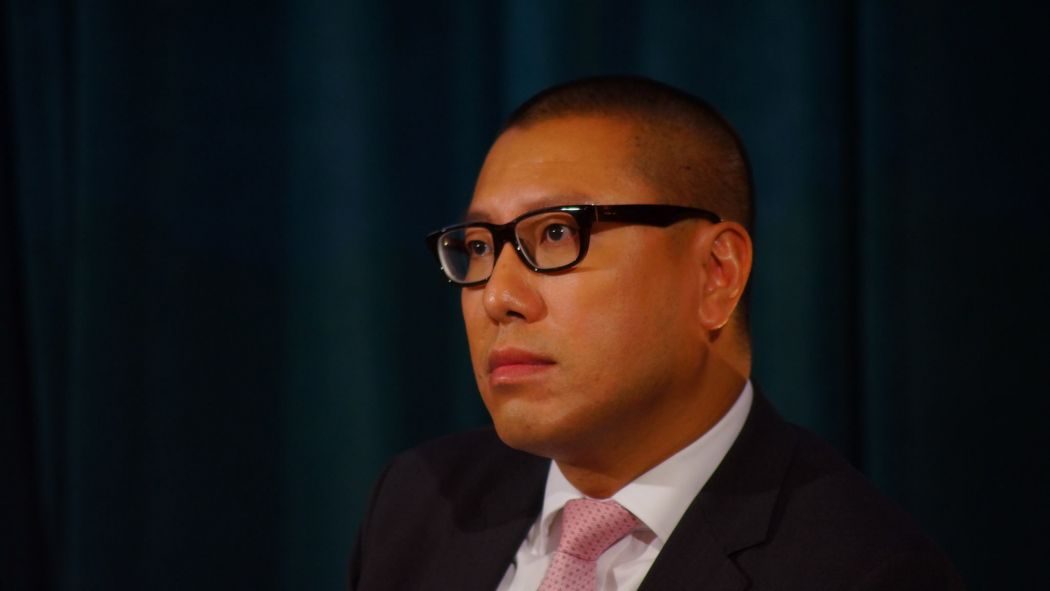
If that is the case, Section 32 of the Crimes Ordinance may be applicable, Yam said. The section stipulates that anyone who makes false statements on oath in a non-judicial context may be jailed for seven years. Section 36, which states that those who make false statutory declarations are liable to two years’ imprisonment, may also be used against lawmakers.
But even if a lawmaker is sentenced to imprisonment for more than one month for a criminal offence, it would still require a two-thirds majority vote at the legislature before they can be disqualified as per Article 79 of the Basic Law.
Yam’s analysis addressed the concern that more lawmakers may be at risk of losing office after Basic Law Committee Chair Li Fei said on Monday that advocates of Hong Kong independence and self-determination have contravened the Basic Law and thereby breached their oath.
Nonetheless, Yam said, the issue of whether – and how – lawmakers who have been sworn-in may be disqualified is “up in the air” because there is nothing in the Basic Law apart from Article 104 that gives guidance on the issue. “It would also involve adding [new provisions] to Hong Kong laws, which [Beijing] has no power to do,” said Yam.
“This interpretation has created more uncertainty and has actually damaged the rule of law by purporting to give [extra] authority to the NPCSC,” he said.
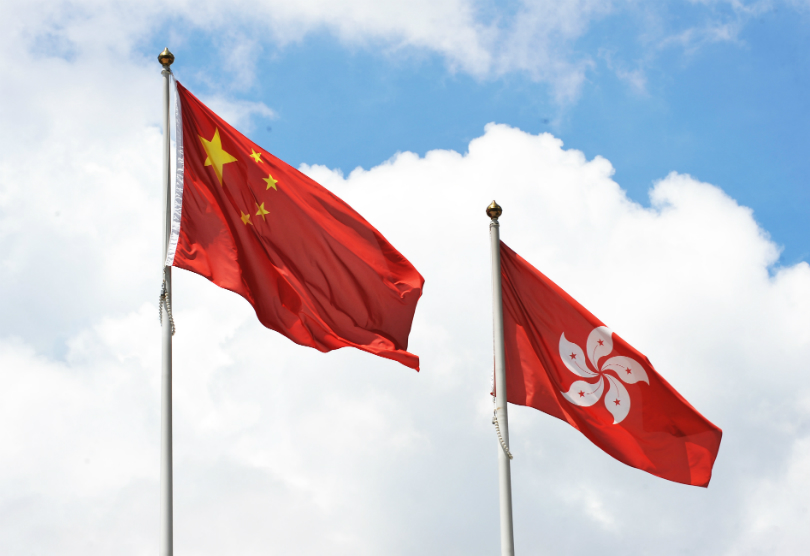
Restrictions on constitutional rights
In response to Beijing’s definition of the term “in accordance with law” in Article 104, Yam said that Hong Kong’s courts previously held that the phrase refers to the prevailing laws in Hong Kong. In other words, it goes back to the issue of which local laws apply in the non-compliance of provisions related to oath-taking.
“Beijing is really going in circles because they’re trying to make a statement when they have no power to do so,” said Yam.
Hence, the implications of Beijing’s interpretation would depend on how Hong Kong’s courts handle it. Without commenting directly on the government’s judicial review against the Youngspiration lawmakers, Yam said that the court would likely seek to protect fundamental rights such as the rights to stand in elections and to free speech.
For example, the Court of Final Appeal held in 2002: “A generous approach should be adopted to the interpretation of the rights and freedoms, whilst restrictions to them should be narrowly interpreted.”
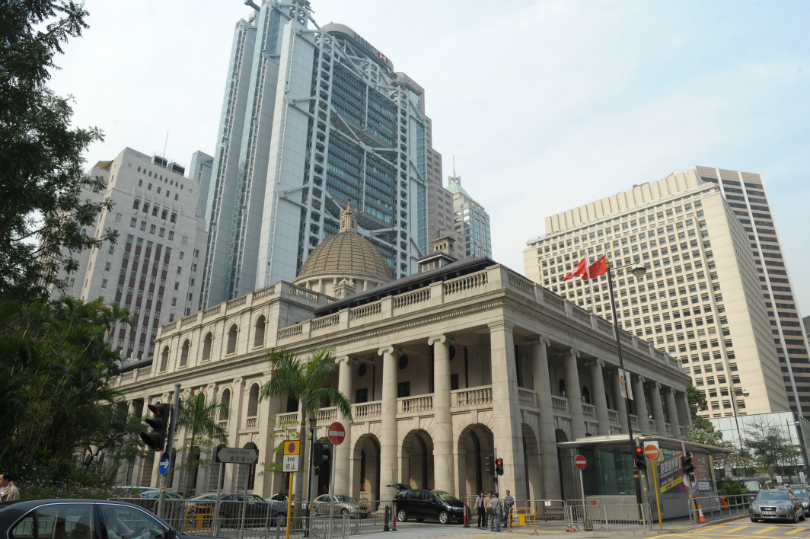
Oath administrator
Monday’s interpretation stated that the “oath administrator” has the duty to confirm that the oath-taking complies with Hong Kong law and the interpretation.
Members of the Civic Party, many of whom are lawyers, criticised Beijing for expanding the power of the Legislative Council Secretary-General, an unelected civil servant tasked with the responsibility of administering oaths.
It said that the interpretation also legitimised the controversial new Basic Law confirmation form that the Electoral Office recently added to the eligibility requirements of candidates who wished to stand in the Legislative Council election last month.
The Civic Party slammed the interpretation for violating provisions in the Basic Law that grant Hongkongers the rights to vote, to stand in elections and to freedom of speech.
“This transformed the rule of law to rule by law,” it said. “It is ridiculous that an unelected civil servant can decide whether a lawmaker with tens of thousands of votes is allowed to enter on his office.”
‘Terrible precedent’
Tai, Yam and the Civic Party said that Beijing’s interpretation of the Basic Law has severely damaged Hong Kong’s rule of law.

Calling the intervention while a lawsuit is pending a “terrible precedent,” Yam said the interpretation would have a profound impact as it sought to assert power to interpret the Basic Law “well beyond” what is allowed of Beijing.
Tai said: “If the Standing Committee is allowed to misuse the power to interpret the Basic Law… no people could trust laws would have any meaning in China and in Hong Kong because laws could be twisted arbitrarily at any time.”
“Hong Kong people must stand up firmly against such acts,” he said. “We must do all we can to stop any act to damage Hong Kong’s rule of law and defend our rule of law through concrete actions.”
